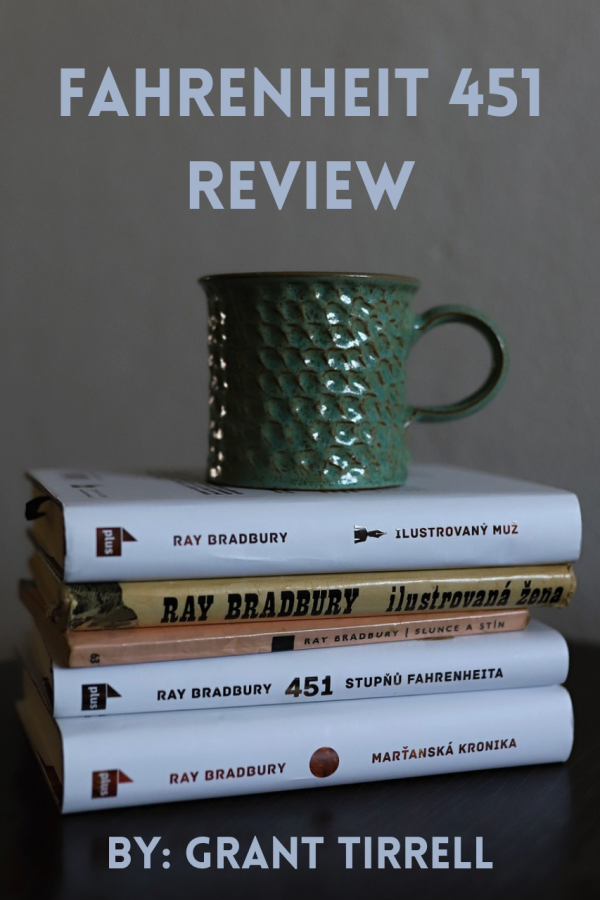Fahrenheit 451 – A Review
(Pixabay)
March 8, 2023

Books that are considered ‘classics’ don’t always stand the test of time. Many of the most significant or thought-provoking sections are less impactful or even ruined by their age, and the themes of some old novels are lost in the modern day. Ray Bradbury’s Fahrenheit 451, published in 1953, is brilliant in that one can easily forget when it was written while reading it. The dystopian future outlined in the book eerily parallels aspects of modern society in some unsettling ways, such as book banning throughout the United States and our increasing preference for short-form content, and the novel critiques these new forms of entertainment in a way that remains relevant today.
Beyond its unique nature among other classics, Fahrenheit 451 details a futuristic society in which books and the ideas that they contain, namely poetry, research, and all kinds of academic or artistic expression, which are ‘dangerous to society’ in the eyes of the people, are considered contraband and are outlawed in favor of more ‘positive and simple’ mediums. Televisions become embedded in all four walls of a house and radios are implanted in people’s ears, which feed people soulless sitcom-style chatter and sensationalized news reports that exist to entertain but not provoke any thought.
The protagonist, Guy Montag, is a fireman whose job is to burn books, houses, and even people when this order is broken. Though he believes that he is happy in his conformity and consumption of mass media, an encounter with a free-thinking youth named Clarisse breaks his perception of happiness. The further events of the novel empower Montag to seek an understanding of books and to fight back against his ignorant, hedonistic society, rather than seek shallow comfort in the cheap, simple entertainment being forced upon him and others.
The complexity of the piece comes from the audience’s interpretation of these events. The novel was originally constructed as a critique of television and radio, being ‘idiot boxes’ that fail to convey nuanced and complex ideas to the public the way that books do. How do we derive happiness from our entertainment? Juvenile delinquents in the book drive and live fast, but fail to learn or experience the world.
These themes of the novel, however, have continued to change along with society and events that have occurred since it was written in 1953. This is a quality not present in many classic novels. Many today choose to interpret Fahrenheit 451 as a warning about the censorship of ideas, and others view it as a celebration of the contrasting opinions and ideas conveyed in books that enrich our minds. The flexibility of the novel contrasts it distinctly from ‘period pieces’ across the literature hall of fame, which is a source of contention amongst critics.
For many, this is considered a shortcoming of the book. After all, isn’t it a sign of ineffective writing that the events of the book illustrate so many different themes to different people? Or perhaps, it is the sign of a masterpiece. Maybe the ideas Bradbury illustrates in the book were such fundamental problems at the time that they continue to be relatable and accurate in different forms today. Fahrenheit 451 dares to be maddeningly interpretive while depicting a society in which the same style of text is scorned.
Regardless of whether or not one finds the book ‘effective’ at conveying its ideas, or if they agree, I feel that it’s hard not to find Montag’s plight compelling. His development from a man who derives pleasure from destroying books, to one who would sacrifice himself to protect them, is touching, and deeply motivating in my eyes. Readers can relate to the reasons Montag wants to protect knowledge, which made the reading uniquely captivating. The book is incredibly interesting, and I would deeply recommend it to those who are interested by its themes, or those who love to interpret a meaningful book. Ray Bradbury’s Fahrenheit 451 is an incredible novel and a true classic.








